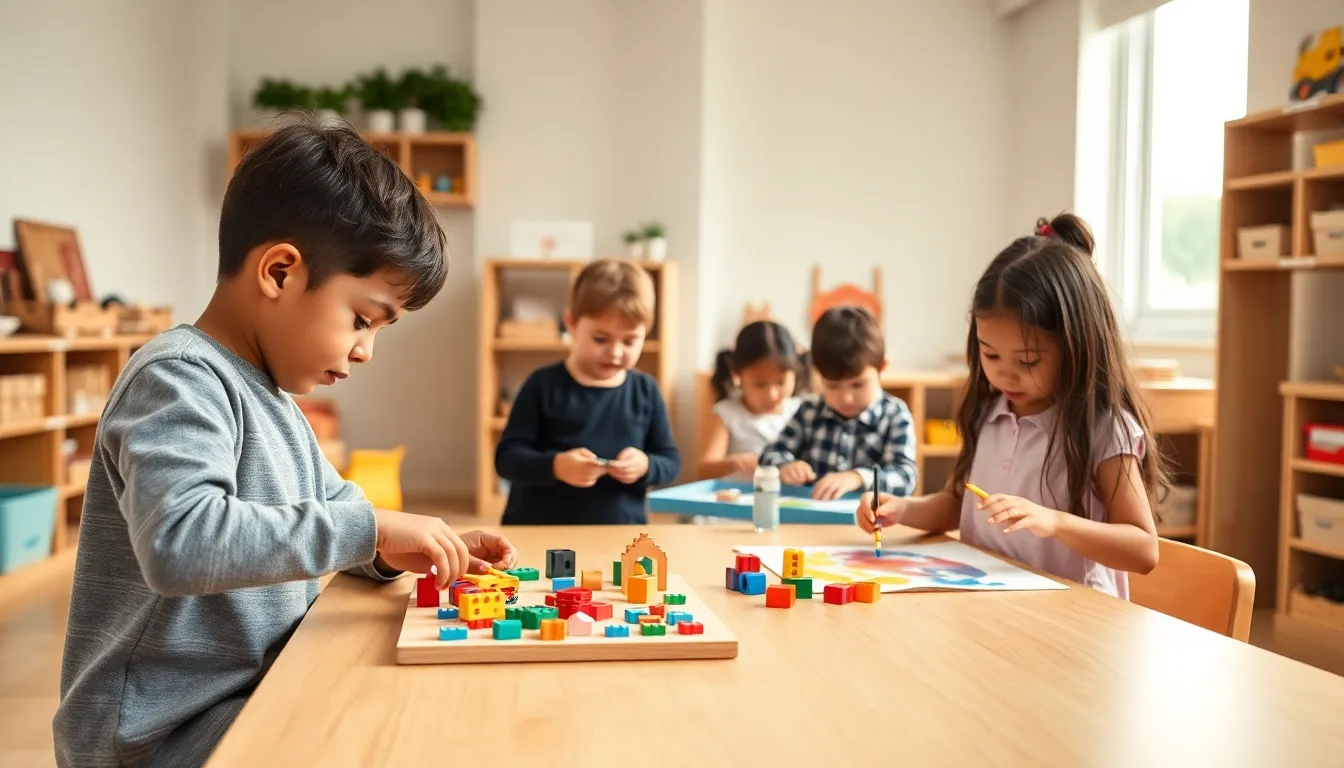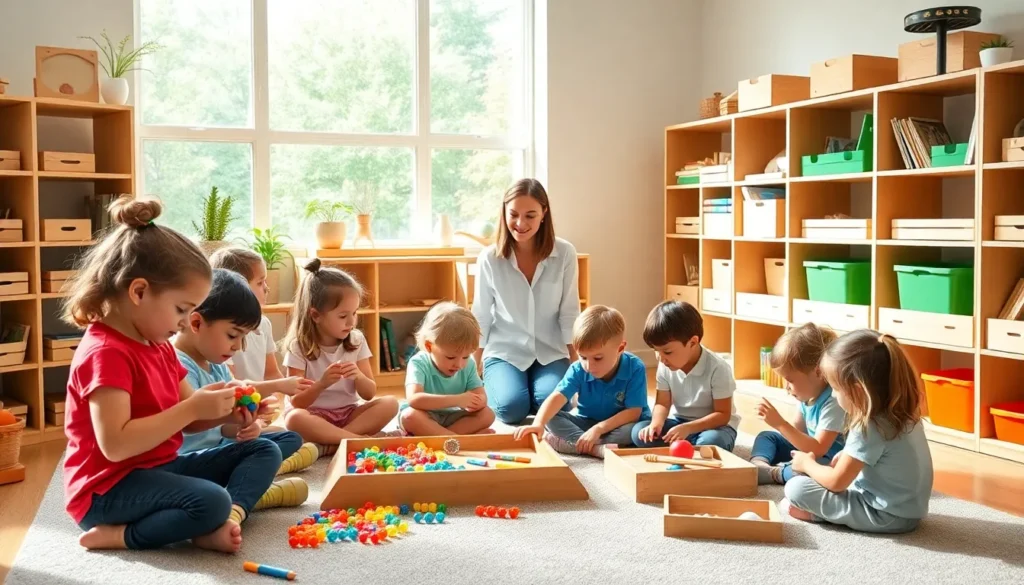Imagine a classroom where children gleefully navigate their own learning paths, guided by curiosity rather than traditional desks and rote memorization. Welcome to the Maria Montessori Academy, where education is transformed into an adventure of discovery. Founded on the principles of Dr. Maria Montessori, this academy invites students to develop independence and a love for learning, all while having a good time. With a dash of innovation and a sprinkle of love, Montessori education is not just about textbooks: it’s about unlocking each child’s unique potential.
Table of Contents
ToggleThe Philosophy Behind Montessori Education

At the core of Montessori education lies a transformative philosophy that aims to prepare children for life and help them explore the world. This method emphasizes self-directed activity, hands-on learning, and collaborative play, creating an engaging environment that complements each child’s natural development.
Principles of Montessori Learning
First and foremost, the principles of Montessori learning focus on respect for the child. Educators believe in the inherent capability of children to direct their own education. By providing the right tools and opportunities, they inspire students to become active participants in their learning journey.
Child-Centered Approach
The child-centered approach is another key element. In Montessori classrooms, children choose their activities based on personal interests. This respectful autonomy fosters a profound sense of responsibility as they make choices and learn from the outcomes, whether successes or failures.
Role of the Educator
Finally, the role of the educator dramatically shifts from that of traditional authority to a facilitator. Instead of lecturing from the front of the class, educators observe and guide children as they engage with materials and each other. This allows for individualized instruction that meets each child’s unique needs.
Prepared Environment
The concept of a prepared environment is foundational to Montessori education. This carefully curated atmosphere is designed to help independent exploration and learning while promoting a vibrant sense of community.
Classroom Setup and Materials
Montessori classrooms feature thoughtfully arranged setups and materials. Each item is chosen with intention, allowing children to manipulate and learn from them. From colorful counting beads to practical life tools, these resources encourage active engagement, fostering curiosity along the way.
Multi-Age Classrooms
Besides, the use of multi-age classrooms creates a dynamic learning environment. Older students often mentor younger ones, reinforcing their own knowledge while developing leadership skills. This interaction fosters a sense of belonging and community, emphasizing that learning is a shared experience.
Benefits of a Montessori Environment
The benefits of a Montessori environment extend far beyond academics. They lay the foundation for essential life skills.
Developing Independence and Confidence
One striking advantage is developing independence and confidence within children. As they navigate their choices and experiences, students become adept at self-regulation. This sense of autonomy nurtures self-esteem and prepares them for future challenges, both in and out of the classroom.
Fostering a Love for Learning
Among the most significant outcomes of Montessori education is its ability to foster a lifelong love for learning.
How Montessori Education Supports Lifelong Learning
The curriculum is designed to deeply engage children’s natural curiosity, making learning enjoyable rather than laborious. When children are excited about their education, they are more likely to pursue knowledge beyond the classroom, developing habits that will serve them for years to come.
Holistic Development of the Child
Montessori education endeavors to address the whole child. This approach goes beyond academics to nurture social, emotional, and cognitive growth.
Social, Emotional, and Cognitive Growth
By engaging with peers and materials, children develop not only intellectually but also socially and emotionally. They learn to communicate effectively, empathize with others, and resolve conflicts independently, skills vital for success in all areas of life.
Community and Parental Involvement
A thriving learning environment also hinges on strong community and parental involvement.
Building a Strong School Community
At Maria Montessori Academy, building a strong school community is paramount. Collaboration between educators and families enhances the educational experience, ensuring shared goals and commitment to nurturing each child’s growth.
Engaging Parents in the Montessori Process
Engaging parents in the Montessori process is another essential aspect of this educational approach. Workshops, meetings, and volunteer opportunities not only ensure families are informed but also deepen their connection to the school community. When parents are involved, children often feel more supported and encouraged in their educational journey.




